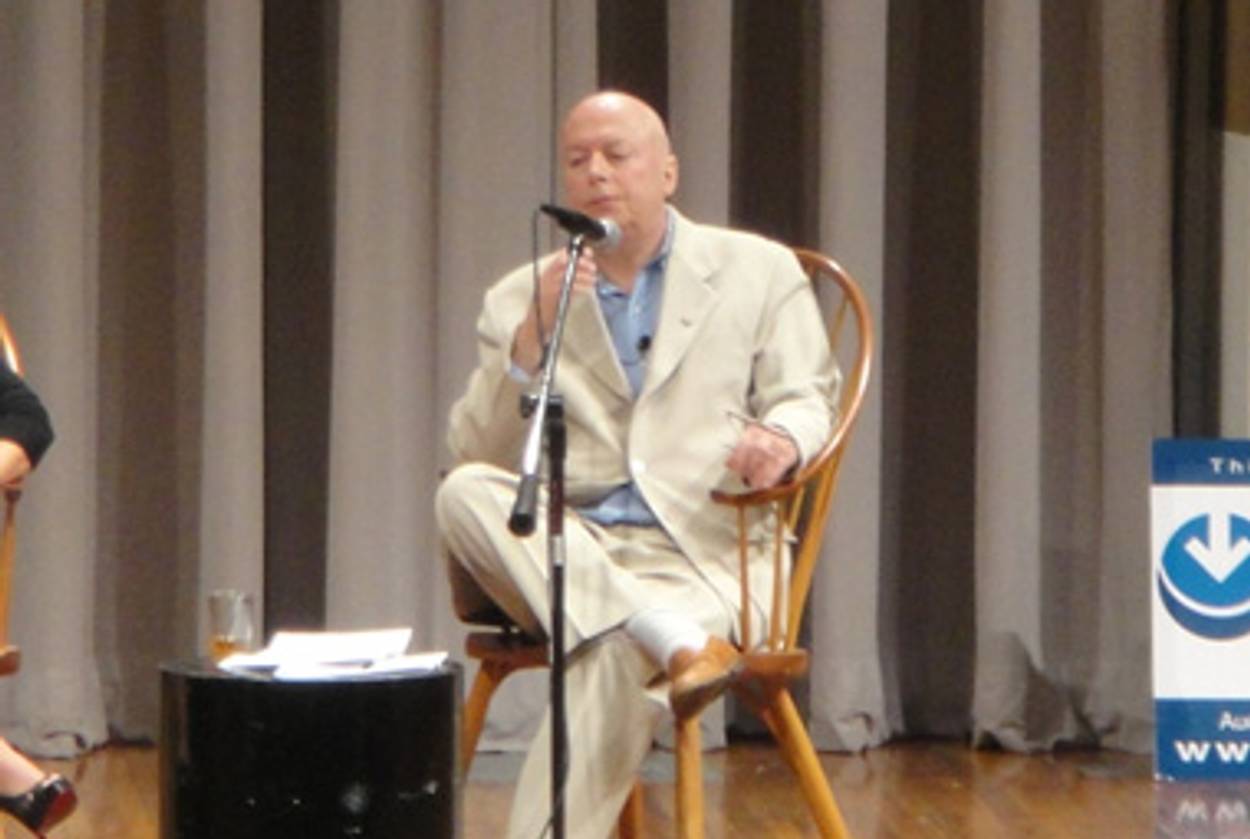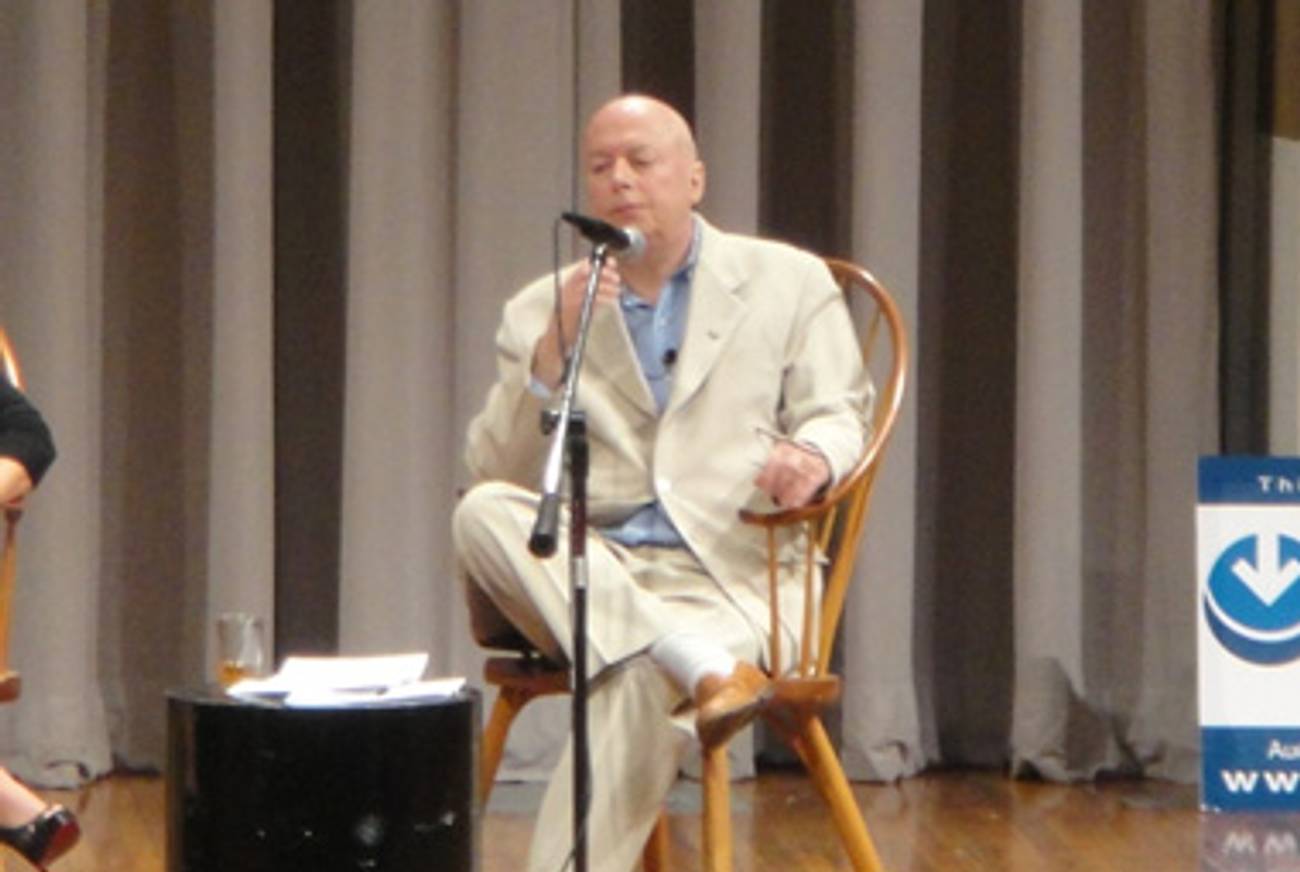Shmuley and Christopher
A rabbi and an atheist walk into a room …




It’s no secret that there are plenty of Jews who are atheists. (In fact, it’s the basis for a number of decent jokes.) It’s also no secret that if you’re the sort of atheist who likes the idea of participating in a set of deeply human rituals that have been celebrated continuously for thousands of years, it’s nice to be a Jew. Especially, as it happens, at this time of year: The confessions of the Ashamnu aren’t about admitting your failings to anyone but yourself, and it’s entirely possible to chant Avinu Malkenu, and mean it, without depending on some more or less Christianized notion of a bearded God sitting in judgment with a big registry book in front of h/Him.
And when it comes to death, neither God nor heaven (nor hell) is prerequisite to the principle that “from dust you come, and to dust you shall return.” Which is why it’s so puzzling that the celebrity rabbi Shmuley Boteach felt that last night, erev Erev Yom Kippur of all nights, would be a good time to debate Christopher Hitchens, devoted atheist and Tablet Magazine contributor, about whether there is an afterlife. After all, their three earlier match-ups went very poorly for the rabbi; Boteach even admitted recently that the best he could hope for was to get Hitchens to admit that organized, God-fearing religion might have some net benefit for humanity, even if the premise of a supreme being is just made-up hoo-ha.
Hitchens, as we all know, was recently diagnosed with cancer—advanced esophogeal cancer that has spread to his lymph nodes, to be specific, which Boteach, in a misguided effort at being kind, referred to as Hitchens’ “ailment.” But Hitch, being Hitch, sauntered out onto the stage at Cooper Union’s Great Hall wearing a beige suit, tailored to his newly chemo-svelte frame, and smiling beneath his new cue-ball dome. He carried a bottle of water, and a plastic cup filled with brown liquid that probably wasn’t medicine.
After the rabbi gave away the farm—his opening gambit was to argue that the Jewish concept of “afterlife” isn’t about the eternal soul, but about the undeniable fact that one’s existence persists in the memory of those who remain alive—Hitchens chastised Boteach for being just “another Jewish secularist.” Then, visibly bored by Boteach’s relentless name-dropping of cardinals and popes and Oxford dons, Hitch went on to denigrate the Catholic Church as an irrevocably corrupt institution that moreover proves how corrupting organized religion can be. (Not just Catholics: Don’t forget this guy.) In other words, very little was ventured, and nothing gained.
So why were the rest of us there? Some, including one Hitch devotee who flew all the way from Chicago to be in attendance, just wanted to witness the spectacle of a dying man’s swan song—this dying man’s swan song. Presumably a few of the Yeshiva University types were there hoping for a magnanimous acknowledgment that religion can, at least, be a comfort. I’ll admit I went hoping for something else: A clear, Hitch-y defense of why the Jewish atheist, unencumbered by concerns about the afterlife—which is to say, of God’s severe decree—has no need to fear death. But that question, sadly, went unasked, and unanswered.
Related: My Purpose in Debating Christopher Hitchens on the Afterlife [Huffington Post]
Topic of Cancer
Allison Hoffman is a senior editor at Tablet Magazine. Her Twitter feed is @allisont_dc.